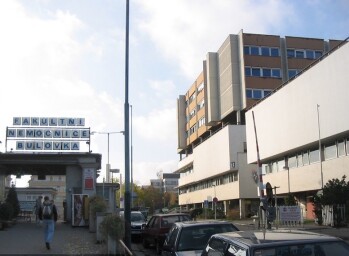In economic terms, the health of the population has a fundamental and irreplaceable impact on the competitiveness of companies and the national economy. Politicians and companies should therefore start placing more emphasis on prevention and on education about an active and healthy lifestyle. In the Eurodebate, jointly organised by the editors of Zdravotnický deník, Ekonomický deník and Česká justice, Jaroslav Bžoch, deputy chairman of the parliamentary foreign and European affairs committee and ANO candidate for the European Parliament, agreed with experts from various fields.
Jaroslav Bžoch, vice-chairman of the Parliamentary Foreign Affairs Committee and the Committee on European Affairs, referred to the health of the population as crucial for the national economy in the Eurodebate. „Given the way our economy is developing and at the same time unemployment, which has been at a low level for a long time, the lack of employees and sickness can fundamentally affect the competitiveness and efficiency of companies,“ Bžoch said, adding that we are an export-oriented country and one of the most industrialised countries in the EU, which also means great demands on employees. „Therefore, we should put more emphasis on prevention. And not only us politicians, but also businesses, because it is a complex problem,“ Bžoch said.

The crucial impact of the level of healthcare on the economic health of countries can be clearly seen in global data, emphasised Viktor Daněk, deputy director of the EUROPEUM Institute for European Policy, at the Eurodebate. „The higher the quality of healthcare, the higher the life expectancy and quality of life. Therefore, the longer people can stay active and contribute to the economic performance of a country. If we look, for example, at the life expectancy indicator, the Czech Republic has been slowly catching up with neighbouring Germany and the EU average over the long term, but it continues to lag behind. In addition, the poorly managed response to the covid pandemic has temporarily brought about a significant drop. Within Central Europe, the Czech Republic is better off than, for example, Poland or Slovakia, but it is still the case that a person born in the west has an average chance of living almost two years older than in the Czech Republic,“ Daněk summarised.

He also warned that the Czech Republic is facing the problem of how to financially ensure at least the same quality of health care in the future as we have today, given that demographic changes will lead to parallel pressure on the pension system. „Despite years of warnings from economists, the Czech Republic has not passed a deep pension reform. And apart from a failed attempt in 2008, governments are either resorting to parametric changes towards greater sustainability or even falling back on proposals for changes that, while appealing to voters, will put even more strain on the balance of the pension account in the future. In general, therefore, the pressure on the state budget in the social area can be expected to grow, which increases the risk for maintaining the quality of healthcare in the future,“ Daněk pointed out, adding that this is a problem that goes beyond one term, which is why domestic governments are chronically unable to address it in a systemic way.

Brigadier General Bohuslav Přikryl, Vice President of CSG Aerospace, also identified the impact of population health on the competitiveness of companies and the national economy as crucial. „A healthy and productive workforce is indispensable for companies as it contributes to innovation, increases productivity and reduces healthcare costs. Conversely, an unhealthy population can lead to a number of negative impacts such as lower productivity, higher healthcare costs and increased absenteeism. All of these threaten the competitiveness of companies and the national economy as a whole,“ said Přikryl. He added: „Population health is a complex issue that requires a comprehensive approach. Investing in this area represents an investment in the future with the potential for significant economic and social benefits.“

The health of the population is crucial for the sustainable development of the national economy and for the long-term competitiveness of companies, according to Barbara Kočtářová, head of the PORTOS law firm. „The issue of employee health is also included in the ESG (Environmental, Social and Corporate Governance) rules, which companies in the Czech Republic are gradually becoming bound by. These rules represent a set of measures that are based on overall sustainability. The letter S stands for social responsibility, which includes taking care of the health of employees and suppliers, alongside other social aspects supporting sustainability. Caring for the health of these people is also in the self-interest of companies and the state, because the healthier the employees are, the higher the potential for economic growth of the company and the overall economy,“ explained Kočtářová.
In order to achieve the best possible health status of the population and to meet the expectations of the ESG, she said, it is necessary to place particular emphasis on prevention and deeper education about an active and healthy lifestyle. „Positive motivation of the population towards a healthy lifestyle is also an appropriate tool. Mental health, which is often neglected, also has an indispensable role to play and deserves attention,“ she added.

Martin Fedor, Chairman of the Board of Directors of the Institute for Central Europe and former Slovak Minister of Defence, is convinced that the health of the population is one of the basic prerequisites for the ability of a national economy to maintain and increase its competitiveness. In our conditions in the Central European region, he says, we can observe a higher official sickness rate and a higher number of days on sick leave. „This has a negative impact on the level of labour productivity and has a direct impact on the performance of the national economy,“ Fedor said. And he also pointed to a second important factor having a major impact on the economy and affecting the labour market to a high degree. „This is, in my opinion, the average healthy life expectancy and retirement age,“ Fedor concluded.
Jakub Němec
Photo: Radek Čepelák












